Growing ginger in a pot is super easy! It’s a clever idea if you live in a cool climate or you don’t have enough space to grow in a garden bed.
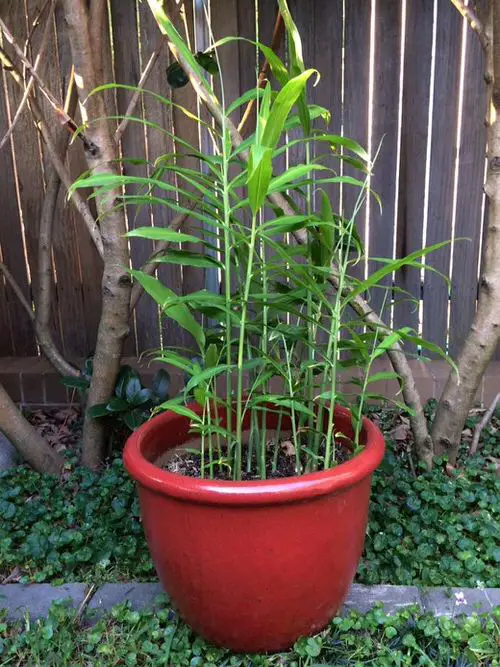
Ginger (Zingiber officinale) is a warm climate spice or herb–and just like garlic or turmeric, it is termed as SUPERFOOD. It has anti-inflammatory and antibiotic properties. This cooling and medicinal rhizome’s ability to expedite digestion power is well-known.
The root of ginger has many uses in almost all cuisines around the world, and you can have fresh access to this herb or spice by growing ginger in pots–continue to read for details below.
Growing Ginger in Pots
If you live in USDA Zone 9b and above or any other subtropical or tropical climates around the globe, you can easily grow ginger as a perennial both on the ground and in a container year-round.
Keep in mind that if you are living below Zone 9b and down to USDA Zone 7b, the leaves of the ginger plants growing outside on the ground will die but come back again after the winter.
Below Zone 7 or in any other cool and freezing part you live, grow ginger in pots and keep the plant indoors in a warm spot during winters.
How Long Does it Take to Grow Ginger?
After transplanting, it will take 5-6 months before the first harvest can be done. At that time, the plant reaches up to at least 3-4 feet tall, and the rhizomes will be ready to harvest. Meanwhile, you can harvest flavorful ginger leaves, which are edible as well.
Ginger Planting and Propagation
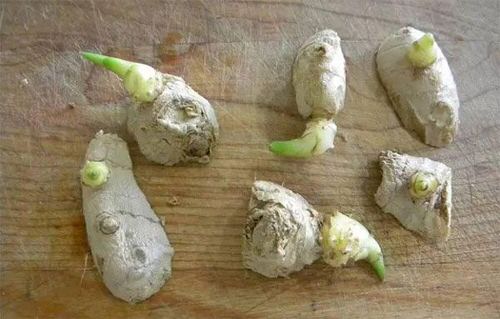
The best time to start growing ginger is spring! However, if you live in a frost-free warm climate, you can try to grow ginger in a container anytime, but the best time is the early wet season.
- Growing ginger roots is not complicated: Buy fresh ginger rhizomes (roots) measuring almost 3 to 5 inches.
- Look for pieces with at least one growth bud or eyes on each piece. These little green buds look similar to that of potatoes and are shown above in the picture.
- Store-bought ginger is sometimes treated with growth retardant chemicals, so it’s a good idea that you keep the rhizomes in water overnight or for a few hours or buy them from the farmer’s market.
- Next morning, cut each root into 1 to 2 inches sections. These sections must have one budding eye. The size of the section will rely on the number of eyes on the root. These eyes germinate new ginger plants–the more sections you’ll cut, the more plants you’ll have.
- You can also plant the rhizomes whole, but if you have divided them, wait for their cut ends to heal for 1-2 days; once the calluses form, they are ready for planting.
- Fill the pot with rich and warm potting mix, and plant the rhizomes 1 to 2 inches deep with the buds (eyes) facing upwards and space them five inches apart.
- Lightly cover with 2-inches potting mix and water till the soil is moist but not soggy. Keep the pot in a warm area that gets at least 5 hours of bright indirect light.
- The shoots will emerge in 3-8 weeks. By that time, keep the soil mildly moist but not waterlogged.
Choosing a Pot
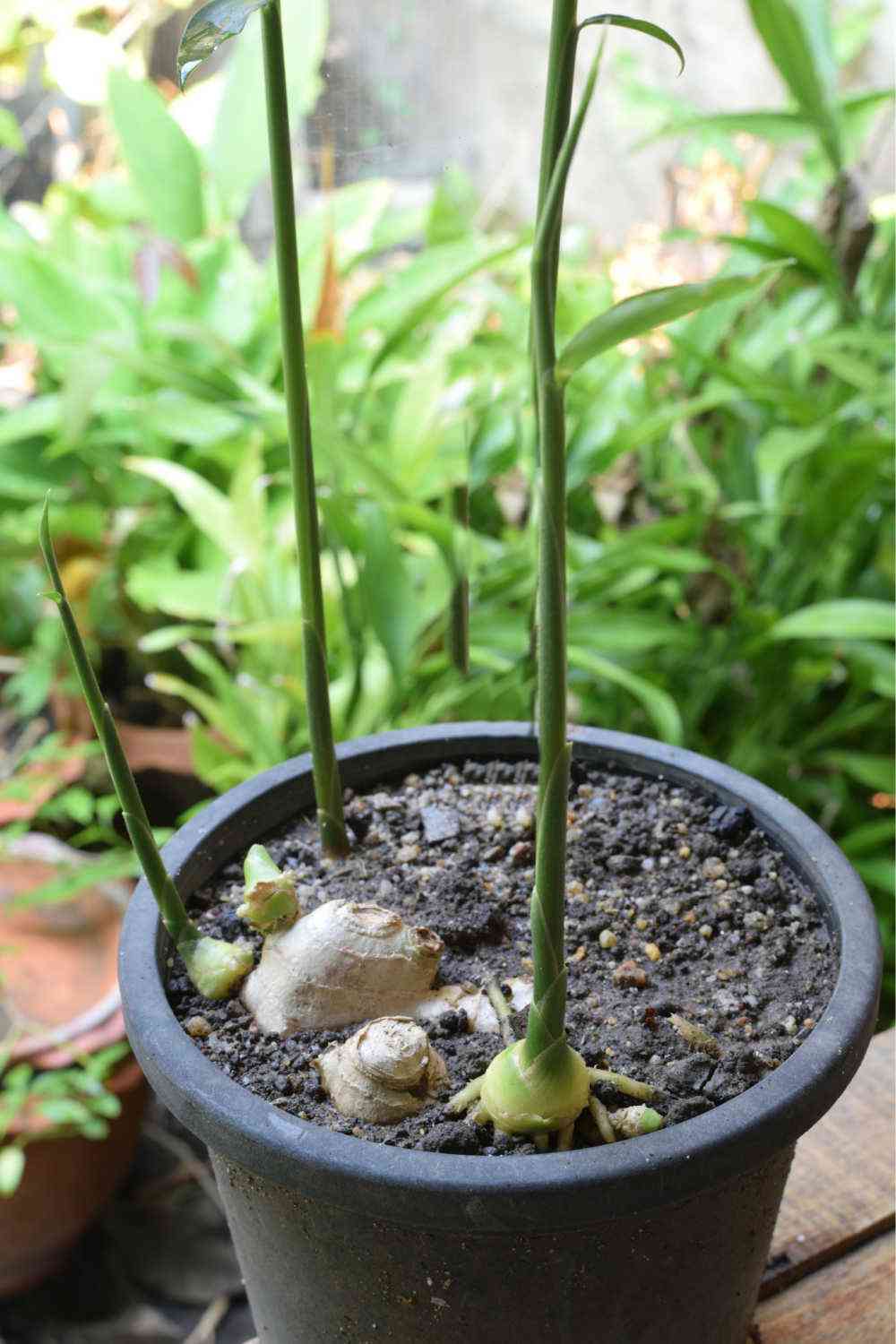
For growing ginger, select a pot that is between 8 to 12 inches deep and as wide as you want. You can also use rectangular window boxes as they are wide, and you can accommodate many rhizomes in a single container.
Requirements for Growing Ginger in Pot
Position
In its natural climate, ginger is known to be grown in partial sun, so it’s a good idea that you keep your pot in a spot that receives full sun but shade in the afternoon. However, if you live in a really cold climate where the sun is mild, keep the plant in a sunny spot.
Soil

Loose, well-drained, and sandy-loamy soil that is rich in compost or well-rotted cow or chicken manure is best for growing ginger indoors or outdoors in a pot. Soil that contains solid chunks blocks the root growth and traps moisture and must be avoided.
Watering
The ginger plant requires deep and regular watering as it prefers slightly moist soil. However, it should be noted that overwatering and waterlogging may thwart the growth and cause root rot. Also, watering should be reduced in winter.
Temperature
As ginger prefers a warm climate, it can’t tolerate drafts and cold temperatures; it is advised to keep your ginger plants indoors when the temperature starts to dip below the level of 50 F (10 C).
Ginger Plant Care
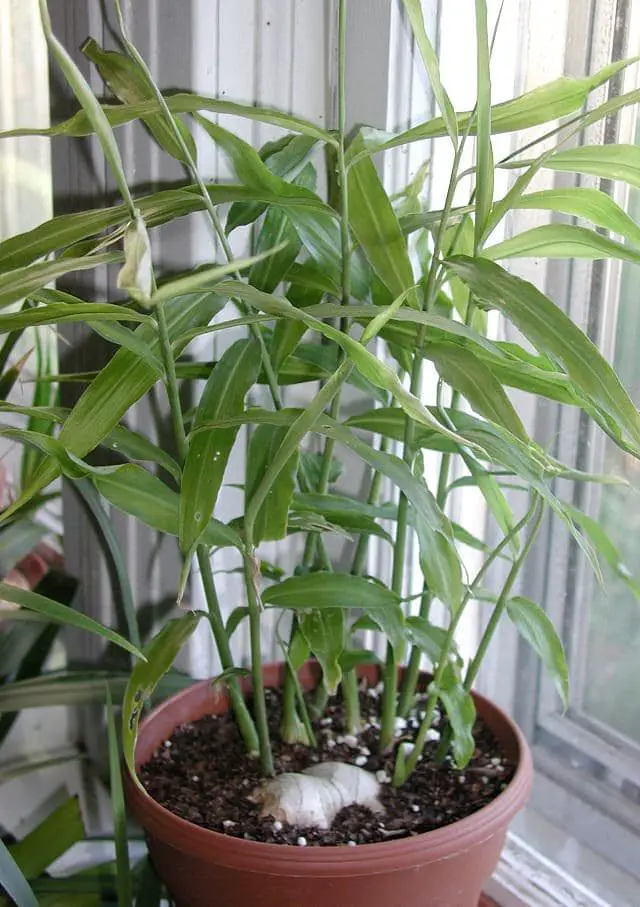
Fertilizer
Ginger requires soil that is rich in organic matter. You can top the pot with compost, worm castings, or well-rotted manure. Additionally, if you are not an organic gardener, you can apply all-purpose liquid fertilizer once a month during the growing season.
Pests and Diseases
Pests including white grub, shoot borer, shoot boring weevil attack the ginger plant. It’s also get affected by bacterial wilt, soft rot, dry rot, and leaf spot viruses. Keeping the plant safe from these diseases and pests is highly recommended.
Since you’ll be growing ginger in a pot and in a controlled environment, chances are you will not face many problems.
Harvesting
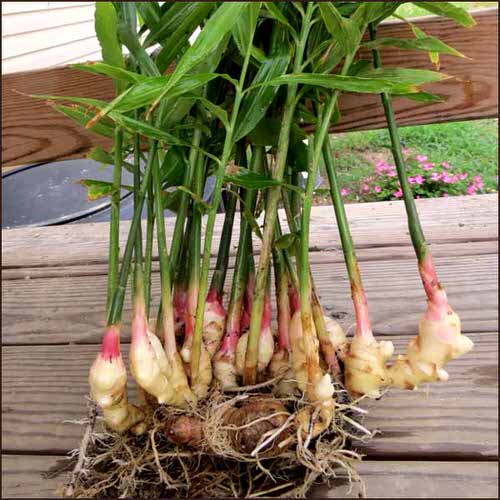
Your ginger roots are going to get ready for harvest within 7-10 months once the leaves start to become yellow.
To harvest ginger, either tap the pot gently and turn the entire pot upside down or use a mini shovel to loosen the topsoil, do not pull the entire plant out. Split the rhizome in one place, and ginger will come out rapidly. Continue to harvest a bit of ginger once in a while and allow the rest of it to grow.

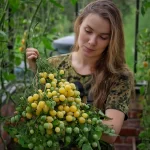

It’s wonderful to grow ginger in pots. I tried it last year in 5 pots and was successful. In fact, I already earned from it and plan to plant another in my recycled bath tub. Thank you so much Pinterest for the insights.
Hi there,
I found this article and what appeared to be your entire website on a site called “Notey.” I had pinned your graphic on Pinterest so I’m going back to redirect the graphic to your site. I am not familiar with “Notey” but because I am a blogger also, I am always on the lookout for scraper sites! Just thought you would want to know.
I would like to know if the ornamental ginger is edible. I have white, peach, and yellow ginger. Is it different from what I buy in the grocery store?
I really do appreciate your entire website. Everything is so interesting and encourages anyone to try their hands at growing something. I do love plants, crochet, art and craft and do get so much more than I can try.
Garlic, Turmeric, Ginger and Welsh Onions … more
I live in south Australia and I have ginger and turmeric growing in pots outside. It is autumn here now and the ginger is starting to brown off a little I intend to leave the pots outside winter temperatures are down to 14/15 Celsius they should be alright I hope. Looking forward to a good crop.
I did enjoy reading this information, thank you
Graham
I had a hard time finding some w/ buds on it. Took a long time to grow. Only 3 lived out of 8 pieces i had put in pot. I have 1 part that is so tall it can’t stand on its own anymore I will have to stake it. I love ginger w/ lemongrass tea. It is the best.